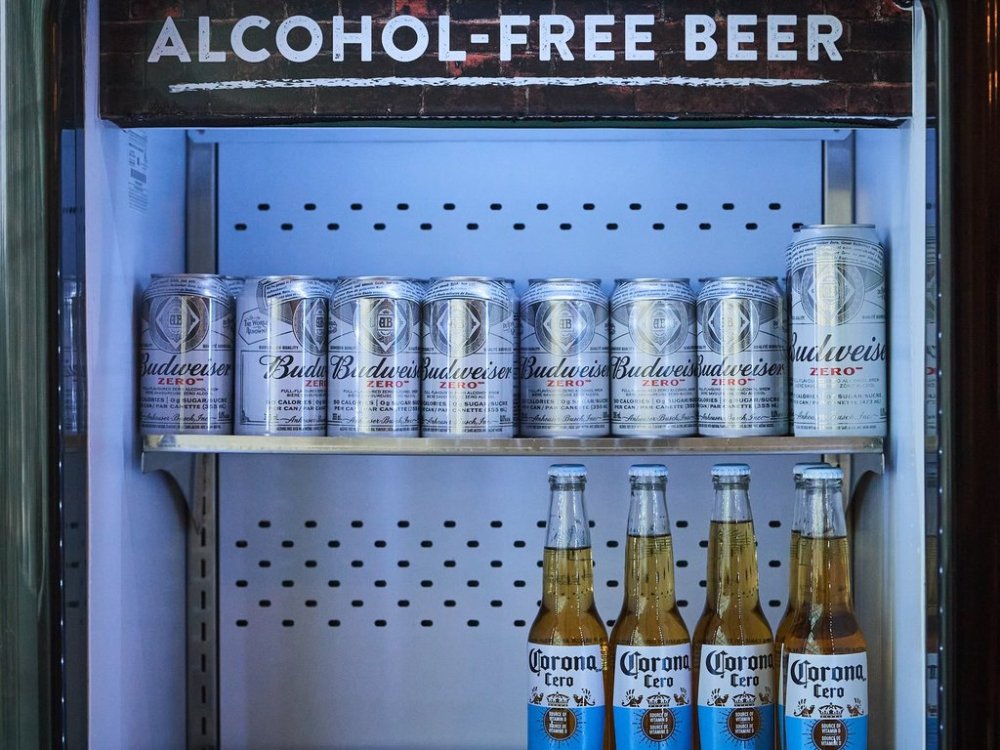Non-alcoholic, health-conscious drinks still in high demand as tastes shift: report
Advertisement
Read this article for free:
or
Already have an account? Log in here »
To continue reading, please subscribe:
Monthly Digital Subscription
$0 for the first 4 weeks*
- Enjoy unlimited reading on winnipegfreepress.com
- Read the E-Edition, our digital replica newspaper
- Access News Break, our award-winning app
- Play interactive puzzles
*No charge for 4 weeks then price increases to the regular rate of $19.00 plus GST every four weeks. Offer available to new and qualified returning subscribers only. Cancel any time.
Monthly Digital Subscription
$4.75/week*
- Enjoy unlimited reading on winnipegfreepress.com
- Read the E-Edition, our digital replica newspaper
- Access News Break, our award-winning app
- Play interactive puzzles
*Billed as $19 plus GST every four weeks. Cancel any time.
To continue reading, please subscribe:
Add Free Press access to your Brandon Sun subscription for only an additional
$1 for the first 4 weeks*
*Your next subscription payment will increase by $1.00 and you will be charged $16.99 plus GST for four weeks. After four weeks, your payment will increase to $23.99 plus GST every four weeks.
Read unlimited articles for free today:
or
Already have an account? Log in here »
TORONTO – A new report says the beverage industry has grown to meet Canadians’ shifting tastes as demand rises for both health-conscious and non-alcoholic drinks.
The report from the Conference Board of Canada, which was funded by the Canadian Beverage Association, said households spent $12.5 billion on non-alcoholic beverages in 2024.
The figure has moderated from the peak of just over $13 billion during the pandemic, coming down 4.4 per cent since 2020, but is still three per cent above pre-pandemic levels.

The Conference Board projected that household spending on non-alcoholic drinks would surpass $13 billion again by 2029.
“It’s obviously holding strong and only going to get bigger. Ultimately, Canadians are looking to make healthier choices,” said Candace Baldassarre, a senior analyst at market research company Mintel.
Mintel’s research shows popularity is strongest among 20-to-34-year-old men.
Baldassarre said around half of Canadians are also trying to cut back on the amount of alcoholic beverages they drink for their overall health, which is helping the category maintain popularity.
“Non-alcohol beer drinkers also often drink beer,” she said.
“Often when we’re thinking about non-alcoholic products that are facsimiles of alcohol, we think that those are drinkers of only these beverages, but that’s not the case.”
The Conference Board report estimated the non-alcoholic beverage sector added $5.8 billion to Canada’s GDP last year, generating $0.8 in additional GDP for every dollar of output. It said the industry supported 45,000 direct, indirect and induced full-time equivalent jobs, as direct employment surpassed 16,000 full-time roles.
“The non-alcoholic beverage sector’s resilience is reflective in the thousands of local, good-paying jobs it creates in communities across the country, from production plants to distribution networks,” said Canadian Beverage Association president Krista Scaldwell in a press release.
“Our members are proud to support jobs across a wide range of sectors, despite the impact of recent trade tensions on the highly integrated beverage supply chain.”
A 2024 report by marketing agency NIQ showed non-alcoholic beverages have seen double-digit growth in Canada in recent years. Non-alcoholic beers dominate that share, accounting for 76 per cent of total non-alcoholic beverages sold.
Sales of beer dropped 4.5 per cent between 2023 and 2024, according to data from Statistics Canada. That marked the eighth consecutive and largest sales volume decline since the agency started tracking alcohol sales in 1949.
Earlier this year, Labatt said non-alcoholic varieties now represent about four per cent of the company’s beer category by volume. The company debuted the non-alcoholic version of Michelob Ultra in October, expanding its existing array of booze-free beverages in Canada.
It’s been a similar story at Molson Coors’ Toronto brewery, which has been producing more non-alcoholic drinks in recent years.
“Within the non-alcoholic space, we’re seeing that continue to grow, like double digits year over year,” said Anthony Purchase, vice-president of commercial operations for Canada, in an interview earlier this year.
“We’re partnering with customers on sustainability and healthy, mindful drinking choices.”
The Conference Board’s research showed that consumer preferences have been shifting toward beverages with ingredients that carry health benefits, reduced sugar, organic certification and plant-based components.
“Gen X and baby boomers really tend to have this preference for low or no sugar, and baby boomers really also care about real ingredients,” Baldassarre said.
—With files from Ritika Dubey
This report by The Canadian Press was first published Nov. 25, 2025.

